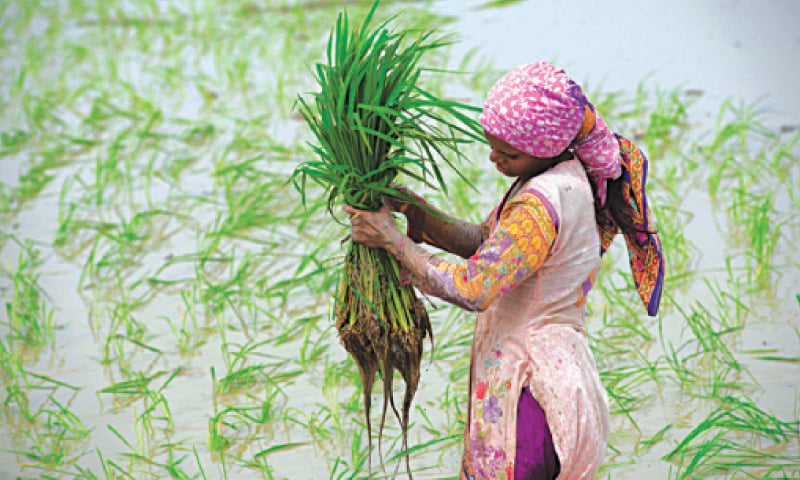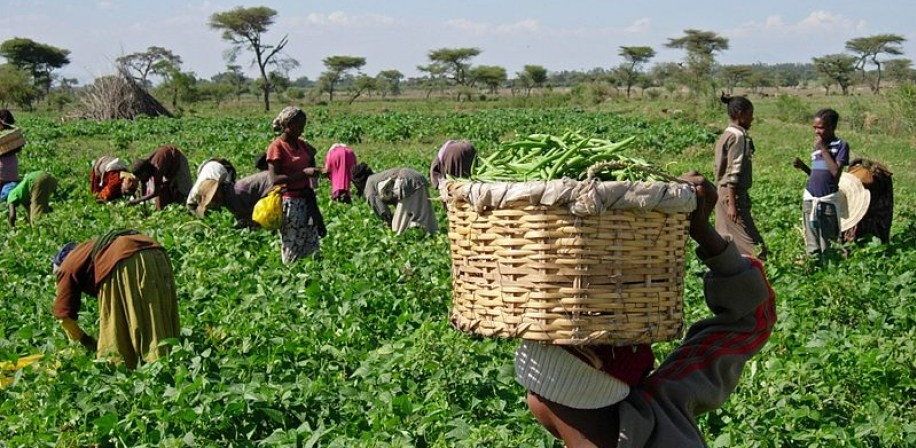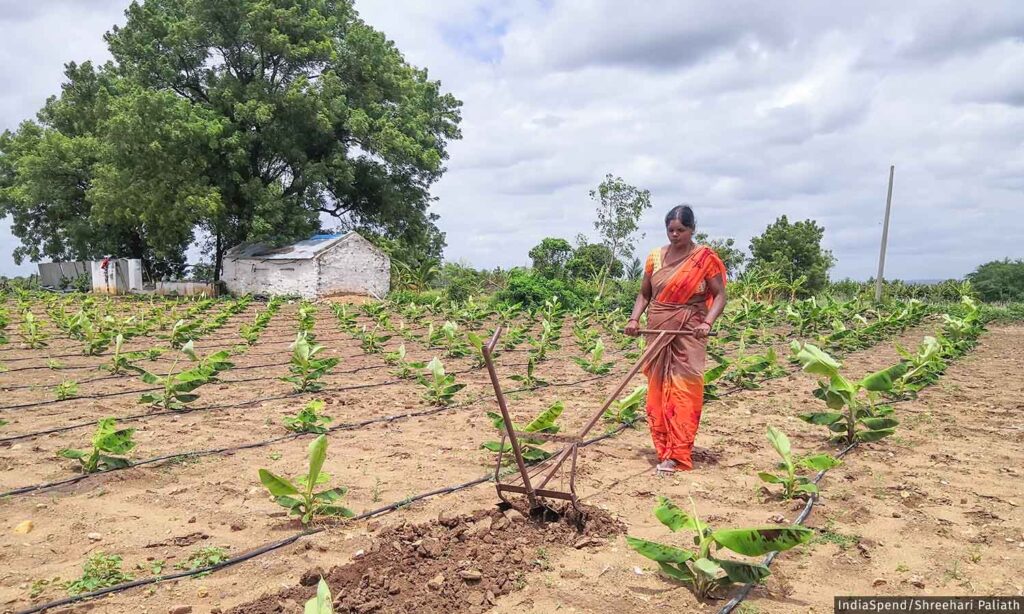
November 17, 2023
Promoting Gender-Responsive Decision-Making in Agriculture: Empowering Women Small Farmers
Introduction:
Gender-responsive decision-making is crucial for the effective and sustainable development of the agricultural sector. Women small farmers, who are often overlooked in decision-making processes, must have equal participation, representation, and leadership at various levels. This essay explores the importance of promoting gender-responsive decision-making in agriculture, emphasizing the need for women small farmers’ voices and perspectives to be considered in shaping policies and programs that directly affect them.
Importance of Women’s Participation in Decision-Making:
- Ensuring Inclusive and Gender-Responsive Policies:
Women small farmers have unique experiences, knowledge, and needs that must be taken into account when formulating agricultural policies and programs. By including women in decision-making processes, policymakers gain valuable insights into the challenges faced by women, such as limited access to resources, discrimination, and gender-based constraints. Women’s participation allows for the development of inclusive and gender-responsive policies that address these challenges and promote women’s empowerment in agriculture. - Empowering Women Small Farmers:
Participation in decision-making processes empowers women small farmers, allowing them to have a say in matters that directly affect their lives and livelihoods. Engaging in discussions and contributing to decision-making can boost women’s self-confidence, leadership skills, and agency. By actively involving women in these processes, they become agents of change and have the opportunity to shape their own futures. - Bridging the Gender Gap in Agriculture:
The gender gap in agriculture can only be bridged by ensuring that women have equal participation and decision-making power. Women small farmers often face barriers to accessing resources, technologies, and markets. By including them in decision-making, policies and programs can be developed to address these barriers and promote more equitable opportunities for women in agriculture. Bridging the gender gap in agriculture is not only a matter of equality but also essential for achieving food security and sustainable development. - Enhancing Sustainable Agriculture:
Women’s participation in decision-making processes is crucial for promoting sustainable agriculture. Women small farmers have valuable knowledge and expertise in traditional farming practices, natural resource management, and agroecology. Their inclusion ensures that agricultural policies and programs incorporate this knowledge, leading to more sustainable farming methods, biodiversity conservation, and climate-resilient practices.

Barriers to Women’s Participation in Decision-Making:
Despite the importance of women’s participation, several barriers limit their access to decision-making processes:
- Sociocultural Norms and Discrimination:
Sociocultural norms and discriminatory attitudes often prevent women from participating in decision-making forums. Deep-rooted gender stereotypes and biases undermine the perceived credibility and capabilities of women small farmers. Challenging these norms and practices is essential to create an enabling environment that encourages women’s active participation and leadership. - Limited Access to Education and Training:
Access to education and training is critical for building women’s knowledge, skills, and confidence to engage in decision-making processes. However, women small farmers often face limited educational opportunities, which can restrict their ability to contribute effectively. Providing equal access to education and training programs can empower women with the necessary tools to participate in decision-making forums. - Unequal Access to Resources:
Women’s limited access to productive resources, such as land, credit, and technology, hampers their participation in decision-making. When women lack ownership or control over these resources, their influence in decision-making spaces is diminished. Efforts should be made to address gender-based resource inequalities and ensure women’s equal access to and control over productive resources. - Lack of Representation:
Low representation of women in decision-making bodies and leadership positions further marginalizes their voices and perspectives. Limited representation often leads to policies and programs that do not adequately address women’s needs and concerns. It is crucial to promote gender-balanced representation and leadership at all levels of decision-making to increase women’s influence and provide them with equal opportunities to participate.

Promoting Gender-Responsive Decision-Making in Agriculture:
- Creating Supportive Policies and Legal Frameworks:
Governments should enact and enforce policies and legal frameworks that promote gender-responsive and inclusive decision-making in agriculture. This includes setting targets for women’s representation in decision-making bodies, providing support for women’s leadership development, and ensuring equal rights and opportunities for women small farmers. - Capacity-Building and Training:
Capacity-building programs should be designed to equip women small farmers with the necessary skills and knowledge to participate in decision-making processes effectively. Training on leadership, negotiation, advocacy, and communication can enhance women’s confidence and enable them to contribute meaningfully in discussions and decision-making forums. - Strengthening Women’s Networks and Organizations:
Supporting and strengthening women’s networks, organizations, and cooperatives is crucial for amplifying women’s voices in decision-making processes. These platforms provide opportunities for women to collectively voice their concerns, exchange experiences, and advocate for their rights. Governments and civil society should provide financial and technical support to these networks, allowing women’s organizations to effectively promote gender-responsive decision-making. - Sensitizing Stakeholders and Promoting Cultural Change:
Awareness-raising campaigns and sensitization programs should be conducted to challenge stereotypes, biases, and discriminatory practices that hinder women’s participation. These campaigns should target key stakeholders, decision-makers, and community members to foster a cultural shift that values and respects women’s contributions and perspectives. - Mentorship and Role Models:
Mentorship programs and the provision of role models can play a vital role in promoting women’s participation and leadership in decision-making processes. Experienced women leaders can serve as mentors and provide guidance, support, and encouragement to aspiring women small farmers. Recognizing and celebrating successful women small farmers as role models can inspire others to actively engage in decision-making processes
All Categories
- Agricultural Methods
- Agriculture and Women Small Farmers Rights Awareness
- Climate Change
- Disable and Human Rights
- Disable Jobs
- Donation
- Education
- Health Issues
- Organic Foods
- Organic Vegetables
- Orphans Children
- Plastic production and disposal
- Services
- Sinking in Scarcity
- Success Stories
- Uncategorized
- Waste Management
- Women Rights
- Youth Empowerment
Recent Posts
Muhammad bukhsh0 Comments
Chairperson of Senior Citizen Forum Sargodha, Recently Visited Sundus Foundation Thalassemia Center
Muhammad bukhsh0 Comments
Climate Change Communication: Fostering Public Awareness and Understanding
Muhammad bukhsh0 Comments




